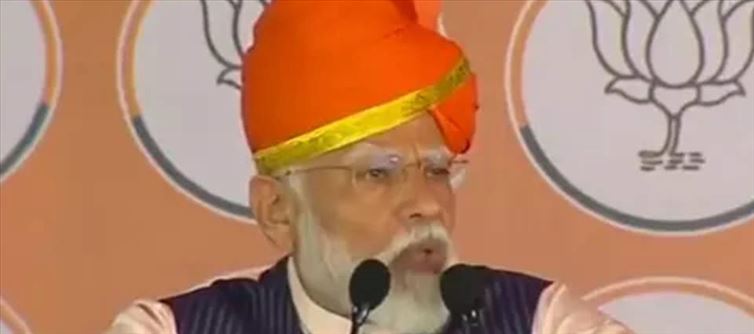
Mutton in Sawan: politics of food and subtle message of PM…
The country is in election mode and both the ruling party and the opposition are firing arrows of promises and attacks from their quivers. From international issues to national and local issues are being touched upon and amidst all this, suddenly 'food' and 'choice' of food has also become an issue. On Friday, prime minister Narendra Modi, in a public meeting held in Udhampur, Jammu and Kashmir, compared opposition party leaders eating mutton in Sawan and fish in navratri and sharing videos of the same to invaders who want to capture the state by defeating a king in a war. They did not get satisfaction; rather they were "satisfied" only after demolishing their religious places.
After Tejashwi Yadav's video and the Prime Minister's statement, the debate started on how right and wrong is politics on 'food'! The court decides what is right and wrong, but those who express surprise about politics on food are either naive, forgetful, or both!
There has been politics on food
There is no doubt that politics on food does not happen every day, but it is also not that politics never happens on food. There are four incidents in the history of modern india, which are related to the politics of food and they changed the political trend of the country. The first incident was when indians revolted against the oppressive rule of the east india Company in the year 1857, the immediate inspiration for which was the belief related to food. In those days, the cartridge had to be fired by pulling it with the teeth and removing the shell. The news spread in the british Army that the shell of cow and pig leather was used in the new cartridge. Devout Hindu soldiers considered cows sacred and religious Muslim soldiers considered pigs impure, so for both of them touching the skin of such animals with their teeth proved to be provocative. What happened after that is history. The second incident is the salt Satyagraha carried out by mohandas karamchand gandhi in the year 1930. Although salt is a small food item that enhances taste, mahatma gandhi understood the effect of tax imposed on salt consumed in every household. At that time the population of india was about 28 crores. Mainly 70-80 people participated in Gandhiji's Dandi march for salt Satyagraha, but the impact of breaking the salt law publicly is taught to children even today.




 click and follow Indiaherald WhatsApp channel
click and follow Indiaherald WhatsApp channel